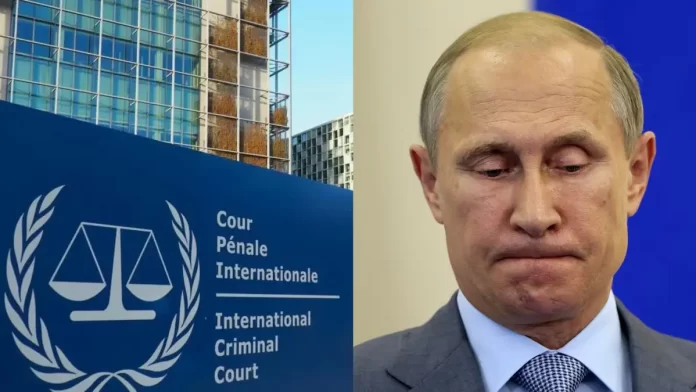In a recent development that has sent shockwaves across the world, the International Criminal Court (ICC) has issued an arrest warrant for Russian President Vladimir Putin.
In its report, the court alleged that Putin is responsible for war crimes, including the unlawful deportation of children from Ukraine to Russia.
This move by the ICC has been met with mixed reactions from various quarters. While some see it as a step towards justice and accountability, others have dismissed it as a mere political move.
In this report, we take a closer look at ICC, its power and mandate and the events leading up to this unprecedented development and its potential implications.
What is International Criminal Court?
The International Criminal Court (ICC) is a judicial body based in The Hague, Netherlands that was established by the Rome Statute in 2002.
The court has a mandate to investigate and prosecute individuals for war crimes, crimes against humanity, genocide, and other serious international crimes.
The ICC’s creation marked a significant milestone in the evolution of international law and the pursuit of global justice.
History of ICC
The idea for the ICC emerged from the Nuremberg and Tokyo trials, which were held after World War II to prosecute Nazi and Japanese leaders for war crimes and crimes against humanity.
These trials established the principle that individuals could be held criminally responsible for acts committed on behalf of a state, and laid the foundation for the development of international criminal law.
Over the following decades, the idea of an international criminal court gained momentum. In 1998, 120 states met in Rome to negotiate a treaty creating the ICC.
The treaty was adopted on July 17, 1998, and the ICC officially came into existence on July 1, 2002, when the Rome Statute entered into force.
Structure and Jurisdiction
The ICC is a permanent court with 18 judges who are elected by the Assembly of States Parties (ASP) for a term of nine years. The ASP is made up of representatives from the 123 countries that have ratified the Rome Statute.
The judges of the ICC are responsible for interpreting and applying the Rome Statute, and for deciding whether individuals should be prosecuted for international crimes.
The ICC has jurisdiction over individuals for the most serious international crimes:
- Genocide,
- Crimes against humanity,
- War crimes, and
- Crime of aggression.
The court can only prosecute individuals, not states, and its jurisdiction is limited to crimes committed after July 1, 2002, when the Rome Statute entered into force.
The ICC can exercise jurisdiction over crimes committed on the territory of a state that has ratified the Rome Statute, crimes committed by a national of a state that has ratified the Rome Statute, and crimes referred to the court by the United Nations Security Council.
In addition, the ICC can prosecute individuals if the state in which the crimes were committed is unwilling or unable to do so itself.
Criticism of ICC
The ICC has faced criticism from some quarters since its inception. One of the main criticisms is that it is biased against African countries.
Of the 28 cases that the ICC has opened, 9 have been against individuals from African countries.
Critics argue that this is evidence of bias, and that the court should be investigating crimes committed in other parts of the world as well.
Another criticism of the ICC is that it is too slow and inefficient. The court has been accused of taking too long to investigate cases, and of spending too much money on bureaucracy.
Some have also argued that the ICC’s focus on individual prosecutions takes attention away from systemic issues and the root causes of conflict.
Implications of Arrest Warrant
The implications of the ICC’s arrest warrant for Russian President Vladimir Putin are far-reaching and complex.
On one hand, it sends a strong message that even the most powerful leaders can be held accountable for their actions.
On the other hand, it is uncertain whether Putin will ever stand trial for his alleged crimes.
The arrest warrant could also have significant diplomatic and political consequences, potentially further straining relations between Russia and other countries.
Deputy chair of the Security Council of Russia, Dmitry Medvedev has already compared the ICC’s arrest warrant for Putin to toilet paper.
Ultimately, only time will tell what impact this development will have on Putin and the international community as a whole.
